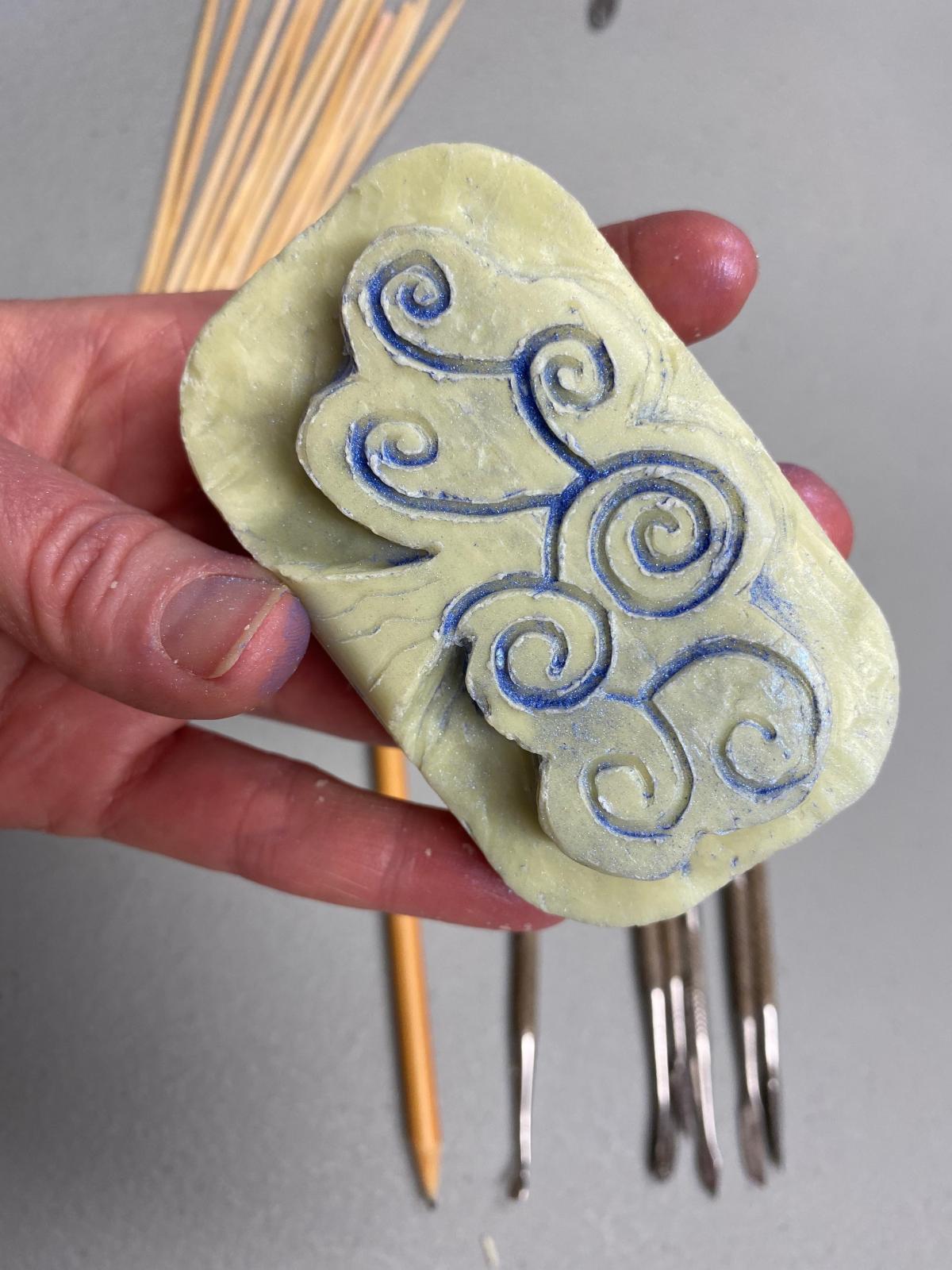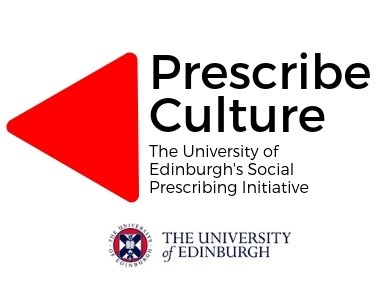
Prescribe Culture: a heritage-based, non-clinical mental health programme
by Ruthanne Baxter, Museums Service Manager, Edinburgh University
What links a copy of the Yorkshire Post, left on a train heading North from York to Edinburgh, and a statistic from a presentation by the University of Edinburgh’s Director of Student Wellbeing? Answer, Prescribe Culture.
Over the course of the 2017/18 academic year, the Counselling Services at the University of Edinburgh saw an increase in demand of 22%. Shortly after hearing this, I happened upon an article about the success of an arts-based social prescribing programme supporting older people, in Swaledale and I asked myself, can we utilise our heritage collections and venues to do for our international students, what art is doing for more senior communities in rural Yorkshire?
So, I brought together a steering group of representatives from the University’s GPs, Counselling Service, Student Support, Students Association and city heritage organisations and, significantly supported by our wonderful Museums Outreach Officer, we had the beginnings of Prescribe Culture, a heritage-based, non-clinical pilot project with the aim of supporting students with mental health difficulties.
University and college students face quite a unique series of circumstances. The majority are, for the first time, away from home and therefore away from their formative support network of family and friends. They are suddenly taking full responsibility of their lives across a range of areas from study to finances, health to housekeeping. If they are international students they may be adapting to a new culture and language and all of this, while still in the final development stages of the adolescent brain.
Let’s not forget, also, that many students may be needing to keep down a full or part-time job and many juggle the responsibilities of being a parent or carer, on top of coursework, revision, exams and trying to build some level of social relationship with their new peers.
Unfortunately mental health difficulties such anxiety, depression, eating disorders and suicide ideation are not uncommon in the student community. Some difficulties are pre-existing while others may onset during their time at University.
The Three Keys
Key to planning Prescribe Culture was consultation with the user group, in this case, students who had lived experience of mental ill health. Their input was vital to getting the pilot as accessible and beneficial as possible.
Key to delivery of Prescribe Culture was the range of referral partners and heritage partners and ensuring both partners felt they had helped shape and had a sound understanding of the ‘why and how’ of the pilot.
Key to evidencing the outcomes and benefits of Prescribe Culture was getting the right evaluation design and methodology in place at the outset.
The Prescribe Culture pilot benefited enormously from a Museums Galleries Scotland grant allowing us appoint an independent evaluation consult to carry out this vital aspect.
Having worked our way through all of the above, the Prescribe Culture pilot project had two offers, Programme 6 and the Take 30 booklet. Referred students elected to engage with one or both and so, the pilot ran from October to December 2019.
Prescribe Culture Programme 6 was a series of 90 minute, small group (max. 8) sessions across 6 weeks. The format of each session tends to be 30 minutes exploring the objects, archives, building with the support of a heritage professional (curator, archivist, engagement officer) followed by 15 minute tea/coffee break and the second half enjoying a creative activity inspired by the heritage, e.g. scrapbooking, book-binding, soap-carving, creative writing.
Prescribe Culture Take 30 booklet was developed for two purposes, firstly to provide an option for the student who would find joining a group activity uncomfortable and secondly as an extension activity for the student participating in Programme 6.
It takes its name from a suggestion, by Dr Paul Dolan, in the Art Fund commissioned research report, ‘Calm and Collected’, that we would all benefit from finding 30 minutes a day to do something that makes us feel good.
The pilot project was readily and generously supported by 15 different cultural organisations from across Edinburgh including, St Giles Cathedral, Historic Environment Scotland, the National Library of Scotland, Royal Botanic Gardens and the Scottish Poetry Library, to name a few.
Outcome?
In short, 100% participants said it helped them connect with the world around them, 100% participants said they would recommend Prescribe Culture to others requiring support with mental health difficulties and all stakeholders agreed the project is of benefit and should be developed as a longer term programme.
Comments from the one-to-one interviews carried out by the independent evaluation consultant included:
“As someone who has ongoing mental health issues, Prescribe Culture helped me greatly”
“It gave me calming activities, a much more productive and helpful way to distract myself and relax than I had before. It is a useful addition to other forms of support”
“I think I would have been a fair bit worse without Prescribe Culture to look forward to each week”
Where is Prescribe Culture now?
COVID-19 has meant we have had to postpone the delivery of Programme 6 and a revised Take 30 booklet until 2021, as the effectiveness of these options is dependent on experiencing the heritage in-person and on-site.
However, as a direct result of COVID, Prescribe Culture has expanded to include a new, online programme, Take 30 Together Virtual (T30TV): ‘Escape, Explore and E-Socialise with a world of Heritage’.
#T30TV developed as an immediate response to lockdown. It opened its virtual doors on the 5th May 2020 and has been exploring heritage across the global every Wednesday and Friday lunchtime ever since.
Originally only available to the University of Edinburgh students and staff, it has since been picked up by the National Wellbeing Hub and is now open to all. For more information and to sign up to #T30TV, please click here
If you would like to know more about Prescribe Culture please do feel free to get in touch with Ruthanne Baxter. You can contact her by emailing [email protected] or you can catch her on Twitter @ruthannebaxter or on LinkedIN

